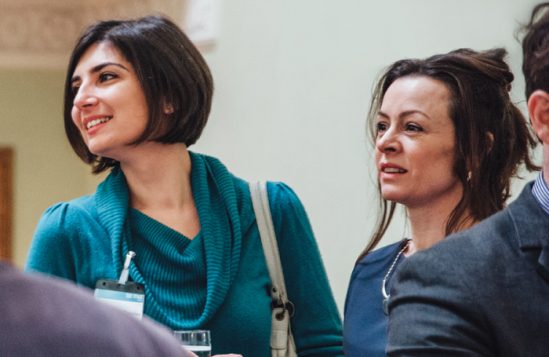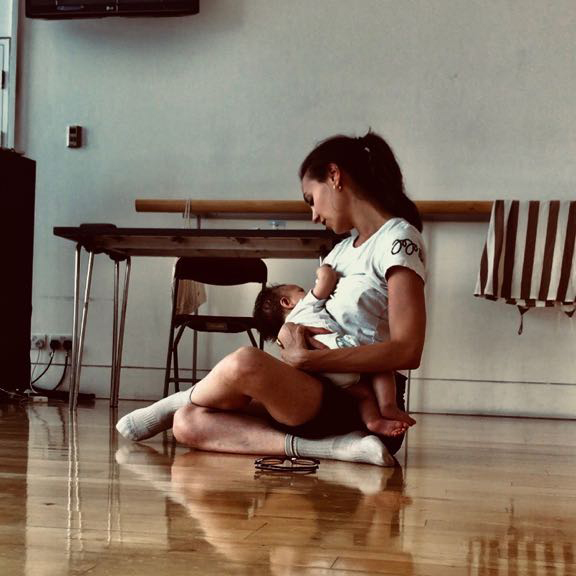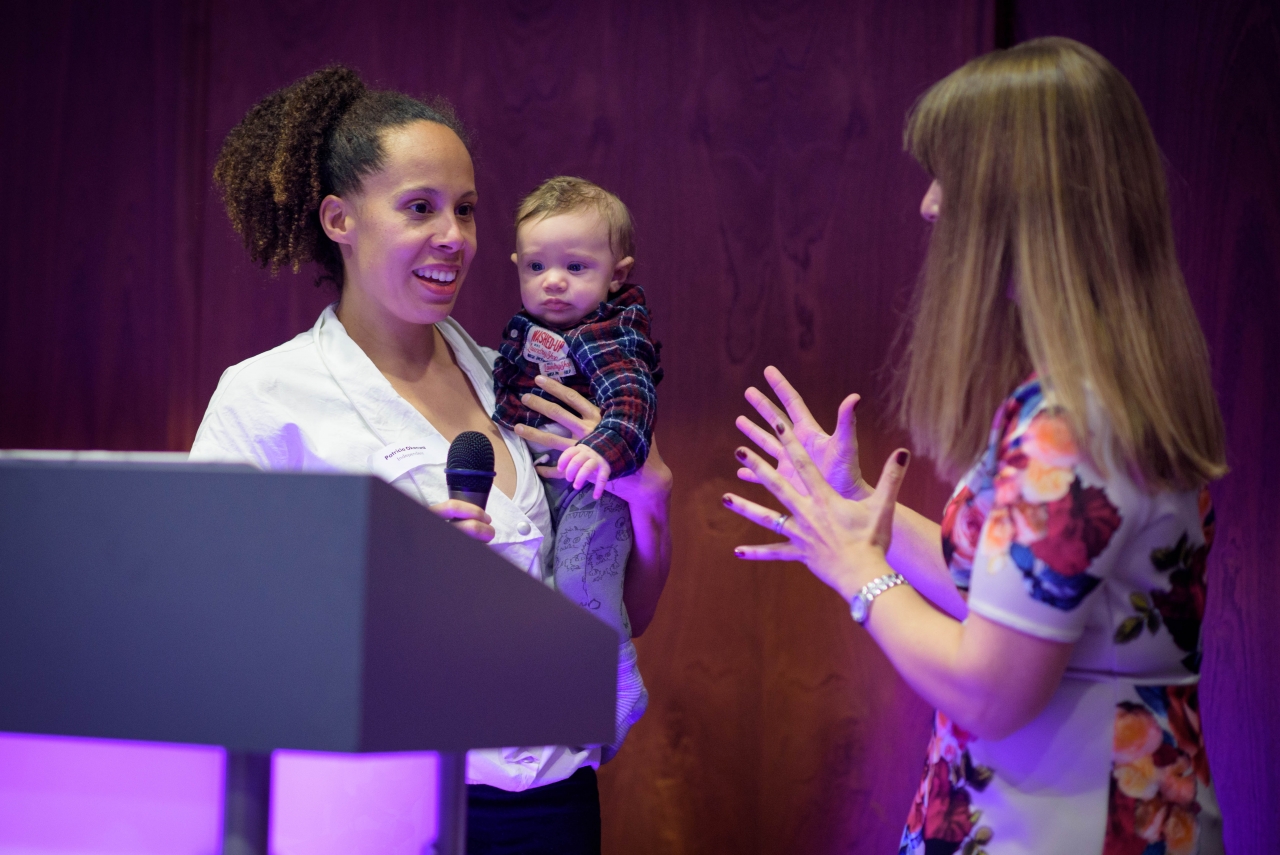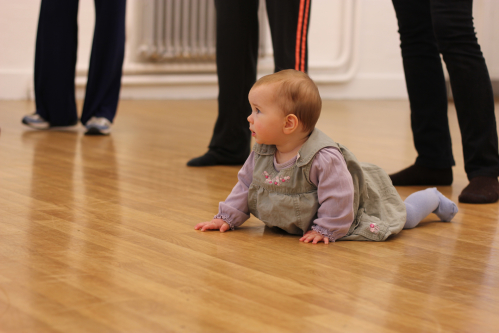About Us
 PiPA was created by Actor Cassie Raine and Director Anna Ehnold-Danailov in 2015, to address a lack of provision for parents and carers in the performing arts.
PiPA was created by Actor Cassie Raine and Director Anna Ehnold-Danailov in 2015, to address a lack of provision for parents and carers in the performing arts.
Leaders across the arts have responded rapidly and with enthusiasm to new ideas, integrating PiPA into new working structures and approaches.
This support and collaboration has seen PiPA grow exponentially, reflecting an increasingly urgent need for representation and change.
We have expanded beyond our roots in theatre, to work with dance, opera and music organisations across the whole of the UK.
As a result, a dynamic national company is achieving real change, creating new opportunities across the performing arts.
We’re an Arts Council England Investment Principles Support Organisation, which means funding thanks to National Lottery players plays a huge part in supporting our work.
Our Purpose
 PiPA believes that a truly world class performing arts is inclusive of all talents and circumstances.
PiPA believes that a truly world class performing arts is inclusive of all talents and circumstances.
We help our partners discover new possibilities, identifying flexible new approaches to employment which release latent talent and opportunities.
By providing factual evidence that parents and carers truly enrich the performing arts, we aim to shift mindsets, address disadvantages and map out practical paths forward.
We respect and value everyone’s contribution. By bringing together employers, unions and representative groups of parents and carers, we find a common purpose, increase access to work, and extend the depth of that work.
Research Driven
 To ensure sustainable progress, we collect data, undertake pioneering research and work collaboratively with performing arts bodies. Appropriate solutions are built on an understanding of the challenges facing carers, parents and supportive employers.
To ensure sustainable progress, we collect data, undertake pioneering research and work collaboratively with performing arts bodies. Appropriate solutions are built on an understanding of the challenges facing carers, parents and supportive employers.
Our evidence-based reporting demonstrates that parents and carers working in the performing arts are disproportionately disadvantaged by irregular schedules, long hours, regular evening and weekend work, last minute changes, work away from home and financial instability. This is exacerbated by the lack of affordable, flexible care for children, disabled or older relatives.
As we emerge from austerity and a pandemic, vulnerable families are more at risk than ever. Women, single parents and those without social capital have been particularly affected. PiPA makes a case for inclusion which benefits employers as well as those with caring responsibilities.
Our work has never been so relevant - or necessary.
Charter Programme
The PiPA Best Practice Charter Programme provides participating organisations with a tried and tested framework, comprehensive toolkit, ongoing collaboration and access to the growing network of PiPA partners in order to work towards achieving the 10 points on the Best Practice Charter.
The Programme builds on data-driven insights and a baseline survey to review, trial then embed bespoke changes, appropriate to the organisation and its individual circumstances.
This supports the development of family-friendly policies, resources and working practices.
PiPA Values & Behaviours
Purpose
At PiPA, we do what we do because we believe that a truly world class performing arts is inclusive of all talents and circumstances. We work together to strengthen the voices of parents & carers. We encourage a new mindset, that parents and carers enrich the performing arts. We show what’s possible by amplifying the successes of our partner organisations. We respect and value what everyone brings to PiPA.
PiPA’s WHY & HOW
|
WHY |
PiPA believes that a truly world class performing arts is inclusive of all talents and circumstances
|
|
HOW |
We respect and value what everyone brings to PiPA
|
|
HOW |
We work together to strengthen the voices of parents & carers
|
|
HOW |
We encourage a new mindset, that parents and carers enrich the performing arts
|
|
HOW |
We show what’s possible by amplifying the successes of our partner organisations
|
Our values are EMPOWER, COLLABORATE, TRANSFORM and AMPLIFY. And our behaviours are the bullet points below each value.
EMPOWER
We respect and value what everyone brings to PiPA
- We empower individuals and organisations to thrive
- We recognise that people own their own stories and don’t judge individual choices
- We practise kindness and understanding of peoples’ lived experience. We do not make assumptions or discriminate on the basis of age, disability, gender reassignment, marriage and civil partnership, pregnancy and maternity, race, religion or belief, sex, sexual orientation or class
- We always champion diverse opinions and perspectives and demonstrate a willingness to act on all of them
COLLABORATE
We work together to strengthen the voices of parents and carers.
- We collaborate to find solutions and drive change
- Everything we do is informed by rigorous research, through which we listen to parents, carers and wider industry transforming insight into action
- We always respect the deep complexities and different facets of caring responsibilities
- We do this by working in collaboration with our industry partners
TRANSFORM
We encourage a new mindset, that parents and carers enrich the performing arts.
- We always make the case that parents and carers are a subset of every protected characteristic
- Everything we do is practical, costed and implementable, yet aspirational
- We will always champion and share positive examples and achievements
- We always consider current resources before we embark on new work, but never limit our aspirations
AMPLIFY
We show what’s possible by amplifying the successes of our partner organisations.
- As Trustees, Staff and Ambassadors, we are all representatives of PiPA and strive to live the values we promote in all our professional and public facing work
- We will always champion and share positive examples and achievements
- We always strive to have an impact through our work
- We promote a positive culture of change in the performing arts
